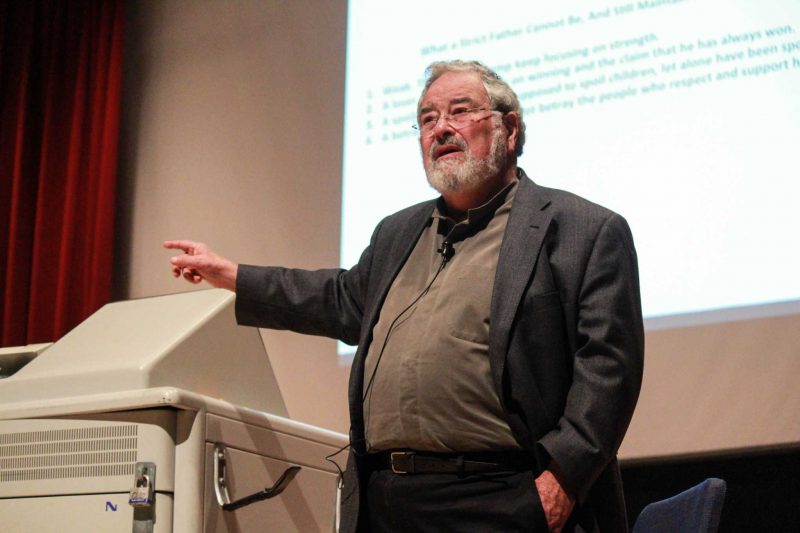“Trump uses the brains of others to his advantage. He has 50 years of experience as a self-interested salesman,” said former UC Berkeley linguistics professor and author George Lakoff during his “Framing the Debate” lecture at SF State last week.
Lakoff’s analytical presentation on Trump’s language and behavior began by explaining the neural mind of people, Trump, and Trump supporters.
“Trump is very conservative in every possible way. People don’t exactly see that it’s actually the same version as other conservatives but more extreme. Much more extreme,” Lakoff said.
Lakoff explained that people can only understand what their neural circuitry allows, and how Trump uses this knowledge to gain supporters that aren’t as aware as others.
“You can only understand what your neural circuitry allows — Worldviews, conflict in politics, etc.” Lakoff said. “When facts don’t fit worldview circuitry, facts are either unnoticed, found puzzling, ignored, rejected, ridiculed or attacked.”
Lakoff separated Trump’s methodology for the presidential debate into multiple categories. Rhetorical strategies like repetition, framing, fear and direct causation are manipulated to gain supporters, according to Lakoff.
“Repeating examples of shootings by Muslims, African Americans and Latinos raises fear that it could happen to you and your community, despite the miniscule actual probability,” Lakoff said.
The linguistics professor said this repetition creates fear and gains Trump more support when he says he can stop it if elected. Trump’s constant outbursts and repetition of “crooked Hillary” in every speech and at each debate is done intentionally to frame Clinton as the obvious wrong choice, while creating “free promotion” for his campaign when his words go viral in the media.
“When a political word is said or heard repeatedly, the circuitry for its conceptual frame gets stronger,” Lakoff explains. “If one side can get the language of its worldview into public discourse and have it repeated more, they have a better chance to increase support.”
SF State linguistics professor and former student of Lakoff’s, Jenny Lederer, arranged the event and said she uses Lakoff’s published work for reference in her own classes.
“Linguistics is looking at patterns of grammar and language. Studying the sounds of world languages and studying syntax, the order of words and language,” Lederer said.

Although recently retired as a professor from UC Berkeley, Lakoff continues to use this idea, along with his knowledge in cognitive science to analyze the election’s discourse in his numerous published works. For this event, he used his book “Moral Politics: How Liberal and Conservatives Think” for reference.
Lakoff said for all the exact fears and problems that Trump presents to the American people, he provides a specific solution to seem as though only he can fix the issues. This tactic is called “direct causation.”
”He has direct solutions for fears, policy after policy,” Lakoff began. “Immigrants? Build a wall. Muslim problem? Stop them. Possible spies? Torture them. Why have nuclear weapons and not use them?” Lakoff said mimicking Trump.
By the end of the event, Lakoff had an audience with many questions and linguistic students excited to get an autograph.
Linguistics graduate student Taneesh Khera was happy to hear Lakoff speak about the election in person.
“I thought it was great,” Khera said. “This is a really heated and ridiculous election and it was interesting to hear his thoughts on it. I definitely agree with him on a lot of it.”
Professor Lederer said the event was an opportunity to show what the linguistics department was truly about.
“We study a lot of really fun stuff like conceptual metaphors, political discourse and framing. So, I want to invite everyone to take a closer look at the opportunities we have in the linguistics and language departments,” Lederer said.






